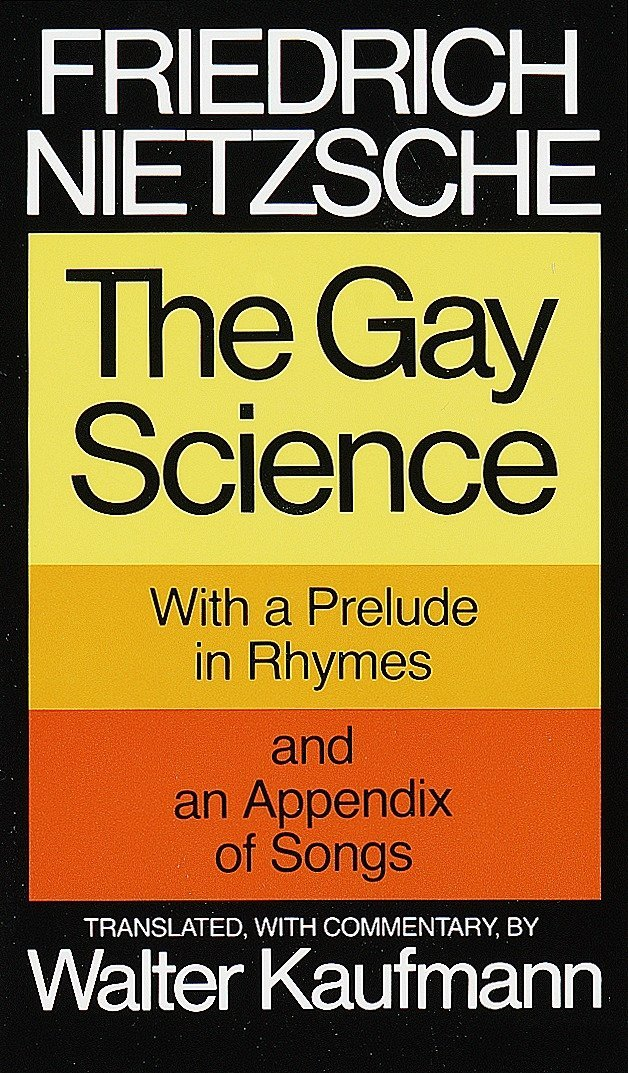The Gay Science Book Three
Author: Friedrich Nietzsche, Walter Kaufmann Publisher: New York, NY: Vintage Books. Publish Date: 1887 Review Date: Status:💥
Annotations
188
Herd instinct.— Wherever we encounter a morality, we also encounter valuations and an order of rank of human impulses and actions. These valuations and orders of rank are always expressions of the needs of a community and herd: whatever benefits it most—and second most, and third most—that is also considered the first standard for the value of all individuals. Morality trains the individual to be a function of the herd and to ascribe value to himself only as a function. The conditions for the preservation of different communities were very different; hence there were very different moralities. Considering essential changes in the forms of future herds and communities, states and societies, we can prophesy that there will yet be very divergent moralities. Morality is herd instinct in the individual.
189
Herd remorse.— During the longest and most remote periods of the human past, the sting of conscience was not at all what it is now. Today one feels responsible only for one’s will and actions, and one finds one’s pride in oneself. All our teachers of law start from this sense of self and pleasure in the individual as if this had always been the fount of law. But during the longest period of the human past nothing was more terrible than to feel that one stood by oneself. To be alone, to experience things by oneself, neither to obey nor to rule, to be an individual—that was not a pleasure but a punishment; one was sentenced “to individuality.”10 Freedom of thought was considered discomfort itself. While we experience law and submission as compulsion and loss, it was egoism that was formerly experienced as something painful and as real misery. To be a self and to esteem oneself according to one’s own weight and measure—that offended taste in those days. An inclination to do this would have been considered madness; for being alone was associated with every misery and fear. In those days, “free will” was very closely associated with a bad conscience; and the more unfree one’s actions were and the more the herd instinct rather than any personal sense found expression in an action, the more moral one felt. Whatever harmed the herd, whether the individual had wanted it or not wanted it, prompted the sting of conscience in the individual—and in his neighbor, too, and even in the whole herd. —There is no point on which we have learned to think and feel more differently.
190
Benevolence.— Is it virtuous when a cell transforms itself into a function of a stronger cell? It has no alternative. And is it evil when the stronger cell assimilates the weaker? It also has no alternative; it follows necessity, for it strives for superabundant substitutes and wants to regenerate itself. Hence we should make a distinction in benevolence between the impulse to appropriate and the impulse to submit, and ask whether it is the stronger or the weaker that feels benevolent. Joy and desire appear together in the stronger that wants to transform something into a function; joy and the wish to be desired appear together in the weaker that wants to become a function.
Pity is essentially of the former type: an agreeable impulse of the instinct for appropriation at the sight of what is weaker. But it should be kept in mind that “strong” and “weak” are relative concepts.
194
In the horizon of the infinite.— We have left the land and have embarked. We have burned our bridges behind us—indeed, we have gone farther and destroyed the land behind us. Now, little ship, look out! Beside you is the ocean: to be sure, it does not always roar, and at times it lies spread out like silk and gold and reveries of graciousness. But hours will come when you will realize that it is infinite and that there is nothing more awesome than infinity.19 Oh, the poor bird that felt free and now strikes the walls of this cage! Woe, when you feel homesick for the land as if it had offered more freedom—and there is no longer any “land.”
199
Pessimists as victims— Wherever a deep discontent with existence becomes prevalent, it is the aftereffects of some great dietary mistake made by a whole people over a long period of time that are coming to light. Thus the spread of Buddhism (not its origin) depended heavily on the excessive and almost exclusive reliance of the Indians on rice which led to a general loss of vigor. Perhaps the modern European discontent is due to the fact that our forefathers were given to drinking through the entire Middle Ages, thanks to the effects on Europe of the Teutonic taste. The Middle Ages meant the alcohol poisoning of Europe. —The German discontent with life is essentially a winter sickness that is worsened by the effects of stuffy cellar air and the poison of stove fumes in German living rooms.23
